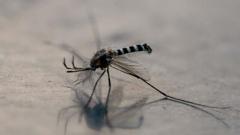In a bold move that has sparked widespread debate, US Health Secretary Robert F. Kennedy Jr. announced the firing of all 17 members of the Advisory Committee on Immunization Practices (ACIP), responsible for official vaccine recommendations. In an editorial in the Wall Street Journal, Kennedy attributed his decision to perceived conflicts of interest among committee members. He claims that these conflicts contribute to a crisis of public trust in vaccines, suggesting that the committee has become a mere formality for endorsing pharmaceutical products.
**Robert F. Kennedy Jr. Disbands Vaccine Advisory Committee Amid Controversy**

**Robert F. Kennedy Jr. Disbands Vaccine Advisory Committee Amid Controversy**
US Health Secretary Robert F. Kennedy Jr. dismisses all members of the Advisory Committee on Immunization Practices, citing conflicts of interest undermining public trust in vaccines.
Kennedy, a well-known vaccine skeptic, emphasized his commitment to ensuring the safety of vaccines while distancing himself from accusations of wanting to eliminate them. The committee members, mostly experts from leading medical institutions, were largely appointed under the Biden administration, with some serving since January 2025.
Critics, including fellow Senate members, have voiced concerns regarding the implications of Kennedy's actions, especially amidst rising vaccine hesitancy and ongoing public health issues like measles outbreaks. Historically, the ACIP has played a crucial role in guiding vaccination strategies, and its sudden overhaul raises questions about future vaccine policies and public health outcomes.
In his editorial, Kennedy laid out his argument that the current structure of the committee is incompatible with an unbiased approach to vaccine safety. Such a sweeping dismissal of the current members signals a significant realignment in the oversight of vaccine recommendations, potentially influenced by Kennedy's own skepticism about the pharmaceutical industry.
Decorated health associations have criticized the move, warning of possible consequences in public health, especially as the nation battles declining child vaccination rates. The ACIP is scheduled to meet shortly to discuss recommendations for various vaccines, leaving many to wonder who will replace the dismissed members and what direction the committee will take under Kennedy's leadership.
As public reactions unfold, the health community anxiously awaits Kennedy's next steps and the potential reshaping of national vaccination strategies.
Critics, including fellow Senate members, have voiced concerns regarding the implications of Kennedy's actions, especially amidst rising vaccine hesitancy and ongoing public health issues like measles outbreaks. Historically, the ACIP has played a crucial role in guiding vaccination strategies, and its sudden overhaul raises questions about future vaccine policies and public health outcomes.
In his editorial, Kennedy laid out his argument that the current structure of the committee is incompatible with an unbiased approach to vaccine safety. Such a sweeping dismissal of the current members signals a significant realignment in the oversight of vaccine recommendations, potentially influenced by Kennedy's own skepticism about the pharmaceutical industry.
Decorated health associations have criticized the move, warning of possible consequences in public health, especially as the nation battles declining child vaccination rates. The ACIP is scheduled to meet shortly to discuss recommendations for various vaccines, leaving many to wonder who will replace the dismissed members and what direction the committee will take under Kennedy's leadership.
As public reactions unfold, the health community anxiously awaits Kennedy's next steps and the potential reshaping of national vaccination strategies.




















